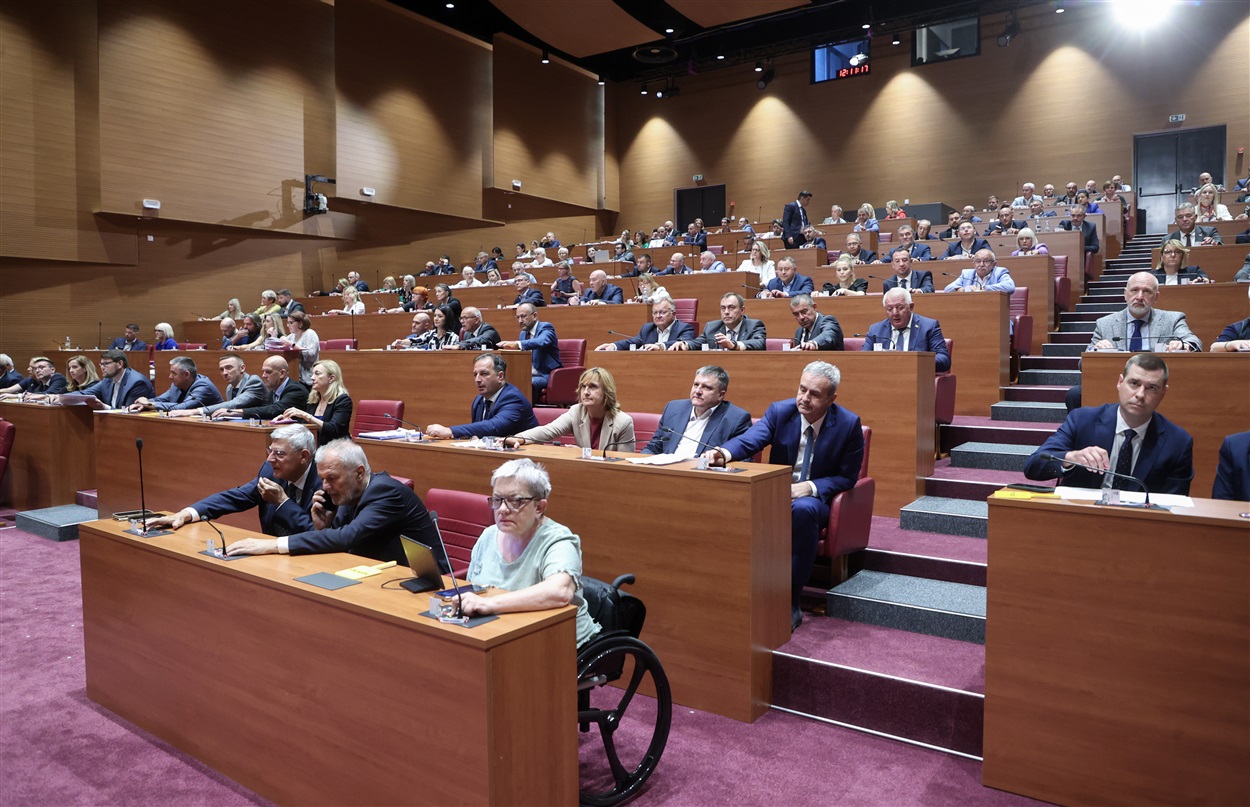
Zagreb - On Tuesday, the Croatian Parliament passed amendments to the Mandatory Health Insurance Act, which will take effect on 1 August, along with a motion submitted by a Bridge MP to expand the list of individuals exempt from the requirement to report to the Croatian Health Insurance Fund (HZZO) every three months.
In addition to the categories already exempt by law (persons on maternity and parental leave, persons unable to report due to health or other reasons, and persons with third- or fourth-degree disability status), the exemption will now also apply to single parents with children under the age of seven, carers of seriously ill family members, and pupils and students re-enrolling in education.
The amendments raise the minimum monthly sickness benefit during temporary work incapacity from €110 to €353, and the maximum amount from €565 to €995. The same amount of €353 will also apply to insured persons who have not had at least nine months of continuous employment or 12 months of employment with interruptions in the past two years and who are on extended sick leave.
The new rules provide for 100% of the salary base to be paid for caring for a sick child up to the age of seven. Travel cost reimbursements for medical purposes will now be calculated at 0.025% of the budget base per kilometre, measured from the person's home address to the contracted HZZO provider or foreign medical facility.
Parliament rejected a motion by the We Can! party that would have required the government to propose within 60 days amendments to the Mandatory Health Insurance Act to allow full public funding for abortion services.
Amendments to Health Care Act adopted
Parliament also amended the Health Care Act under fast-track procedure, abolishing mandatory internships for healthcare workers and introducing stricter rules for staff facing criminal charges related to sexual offences and child abuse.
The amended Act tightens eligibility requirements for private practice in clinics and for employment in healthcare.
Specifically, a person providing health care services or participating in diagnostic and treatment procedures must not be under investigation or have a final conviction for criminal offences related to sexual freedom, abuse or the exploitation of a child, as defined under the Criminal Code. If convicted of such an offence, employers are obliged to terminate their contract.
Internships and state exams will no longer be required for the following professions: midwife assistant, physiotherapy technician, physiotherapy graduate, health lab technician, graduate in medical lab diagnostics, sanitary engineer, sanitary technician, occupational therapy graduate, radiological technology graduate, dental technician, dental assistant and pharmaceutical technician. However, a supervised work period of up to three months is introduced for those entering these professions for the first time.
Parliament rejected an SDP motion calling on the government to submit the Health Care Act amendments under regular parliamentary procedure, arguing that the conditions set by the Parliament's Rules of Procedure for urgent procedure had not been met.
Speech Therapy Services Act passed
Parliament also adopted the Speech Therapy Services Act, stipulating that the profession may only be practised by a master's-level graduate in speech therapy who holds a valid licence from the Croatian Chamber of Speech Therapists, renewed every six years, and is registered.
The Act specifies the locations where speech therapy services may be provided and the conditions under which they may operate. It states that only master's degree holder may apply for a licence during the transition period, excluding others who may have previously been practising.
Companies and sole proprietors currently offering speech therapy services will have two years to align their activities with the new requirements.